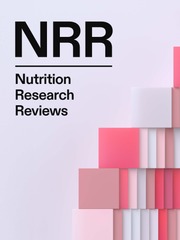Article contents
The effect of calcium on iron absorption
Published online by Cambridge University Press: 14 December 2007
Abstract
The experimental and epidemiological evidence demonstrating that Ca inhibits Fe absorption was reviewed, with the objectives of estimating the potential impact of variations in Ca intake on dietary Fe bioavailability and of providing some guidelines for predicting the effects on Fe status of recent recommendations for higher dietary Ca intake. In animal models Ca salts reduced both haem- and non-haem-Fe absorption, the effect being dependent on the amount of Ca administered rather than the Ca:Fe molar ratio; dairy products had a variable effect; factors other than Ca may have been important. In single-meal human absorption studies, both haem- and non-haem-Fe absorption was inhibited by Ca supplements and by dairy products, the effect depending on the simultaneous presence of Ca and Fe in the lumen of the upper small intestine and also occurring when Ca and Fe were given in the fasting state. The quantitative effect, although dose dependent, was modified by the form in which Ca was administered and by other dietary constituents (such as phosphate, phytate and ascorbic acid) known to affect Fe bioavailability. The mechanism by which Ca influences Fe absorption has not been elucidated. The effects of factors that modulate Fe bioavailability are known to be exaggerated in single-meal studies, and measurements based on several meals are more likely to reflect the true nutritional impact. The results of most multiple-meal human studies suggest that Ca supplementation will have only a small effect on Fe absorption unless habitual Ca consumption is very low. Outcome analyses showed that Ca supplements had no effect on Fe status in infants fed Fe-fortified formula, lactating women, adolescent girls and adult men and women. However it should be noted that the subjects studied had adequate intakes of bioavailable Fe and, except in one study, had relatively high habitual Ca intakes. Although cross-sectional analyses in Europe have shown a significant inverse correlation between Ca intake (derived primarily from dairy foods) and Fe stores, the quantitative effect was relatively small. The general conclusion is that dietary Ca supplements are unlikely to have a biologically significant impact on Fe balance in Western societies unless Ca consumption is habitually very low; however, increased consumption of dairy products may have a small negative effect that could be functionally important in pregnancy if Fe supplements are not taken. It is uncertain whether the inverse relationship between consumption of dairy products and Fe status is due entirely to increased Ca intake; substitution of milk proteins for meat may also have negative effects on Fe balance.
Keywords
- Type
- Research Article
- Information
- Copyright
- Copyright © CABI Publishing 2000
References
- 67
- Cited by


